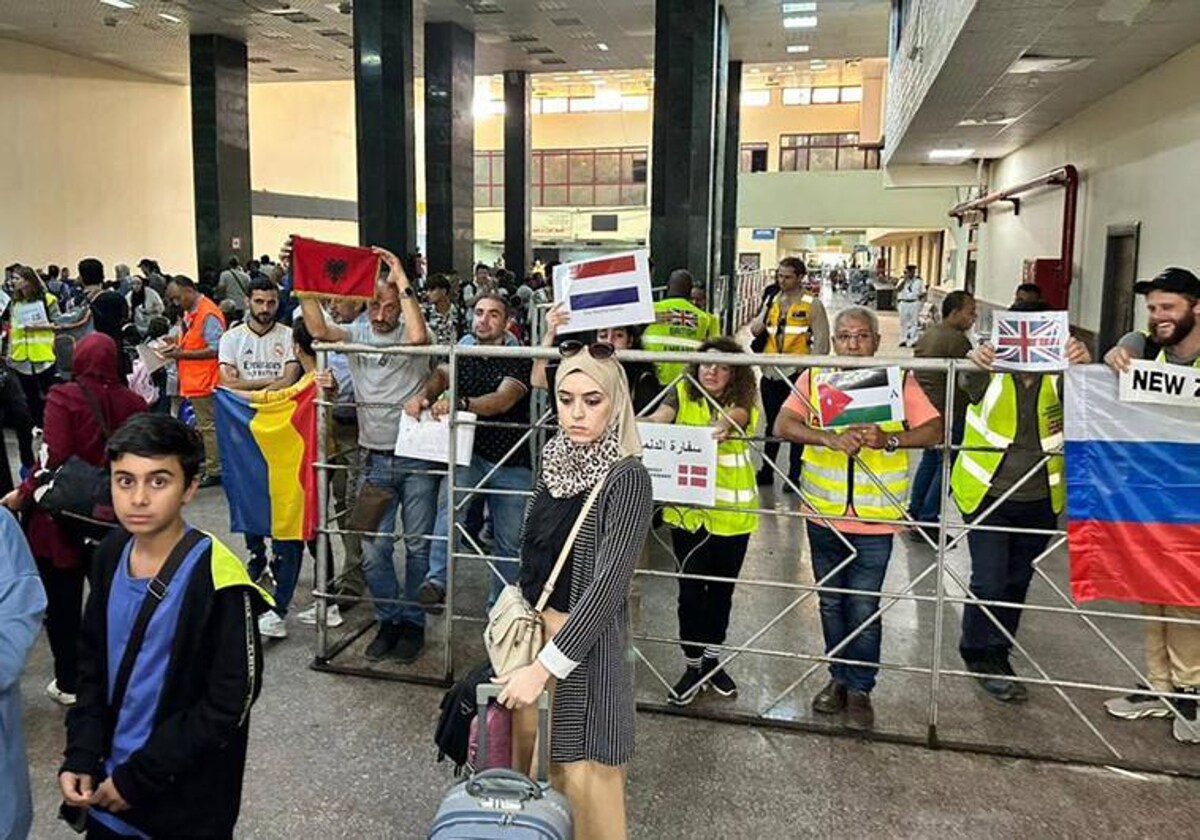Spanish nationals trapped in Gaza Strip finally able to evacuate the war zone via Rafah crossing
In the coming days, between 140 and 170 people are due to cross over into Egypt and be flown back to Spain in a military plane
Pablo M. Díez / Carlota Pérez
Cairo / Madrid
Monday, 13 November 2023, 11:51
Finally, and after an endless wait, early this Monday (13 November), a group of forty Palestinians with Spanish passports left the Gaza Strip through the Rafah border crossing towards Egypt. In this first group there were 22 minors. Spain's Minister of Foreign Affairs, José Manuel Albares, confirmed, "The latest information we have is that the first Hispano-Palestinians have crossed the Palestine checkpoint and are already at the Egyptian checkpoint to enter the country definitively."
In the coming days, between 140 and 170 people are expected to cross the Rafah border from Gaza into Egypt after the point was opened to foreigners on 1 November. "It will be done in groups of between 30 and 40 people," said Salah Awad El Sousi, a 73-year-old doctor who arrived in Spain in 1969 and works with the Spanish-Palestinian community. After being notified by the Spanish consulate in Jerusalem, their turn to leave Gaza will be determined by lists drawn up by the Palestinian general authority for crossings and borders, and approved by Israel and Egypt. The lists are published in the early hours of the morning on their Facebook page, which summons them to the Rafah crossing at 7am.
A bus sent by the Spanish embassy in Egypt will be waiting for them there, taking them to the country's capital, Cairo, where they will then be evacuated to Spain in a military plane. The mission is complex, not only because of the difficulties in moving inside Gaza towards Rafah, but also as the crossing is in an area of Egypt closed to foreigners and the media due to the jihadist threat. Special permits are therefore required to move through the northern Sinai Peninsula from the Suez Canal to the Rafah border.
1.7 million displaced
Most of the Spanish-Palestinians are already in the southern part of Gaza Strip, where 1.7 million people have fled. At a rate of 30 to 40 evacuees per day, all of them are expected to leave the enclave later this week.
Since the opening of the Rafah crossing on 1 November, more than 1,400 foreigners and Palestinians with dual nationality have been able to leave the Strip, as well as seriously injured people to receive proper treatment in Egypt. In the first few days, two Spanish humanitarian workers left: Raúl Incertis, an anaesthetist with Médecins Sans Frontières (MSF), and Jesús Sánchez, a United Nations employee.
Of the 7,000 foreigners or Palestinians with dual nationality that Egypt had planned to allow to pass through Rafah, Americans, Britons, Germans, French, Italians, Polish people, Russians, Romanians, Filipinos, and Indonesians have already left.
